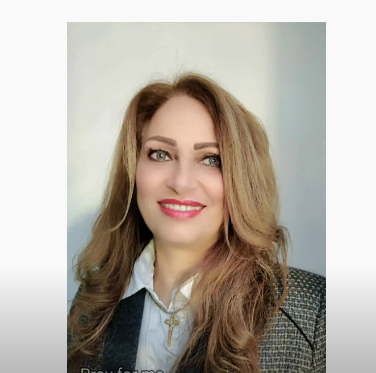what is the brunei law called
Will Brunei's anti-LGBT Sharia law spread across Southeast Asia?
 |
what is the brunei law called |
(CNN) — Brunei's new law rebuffing gay sex with death by stoning has sent a rush of dread over the LGBT populace in neighboring Malaysia and Indonesia.
On April 3, the little oil-rich kingdom of Brunei presented an exacting Islamic legitimate code ordering demise for infidelity and sex between men, just as lashes for lesbian sex and removal for violations like burglary.
It has started a tide of judgment from Western countries and big names alike. UN High Commissioner on Human Rights Michelle Bachelet on April 1 depicted the laws as "draconian" and a difficulty for human rights.
Be that as it may, over Brunei's outskirt in Indonesia and Malaysia, both Muslim-dominant part nations, there has been legitimate quiet.
The absence of reaction from the conspicuous Southeast Asian pioneers is probably going to fuel worries about the ascent of traditionalist Islam in the locale and the ramifications for sexual and religious minorities.
As of late, traditionalist Muslim gatherings have turned into an incredible power in the area, pushing for nearer adherence to the more unbending of Islamic qualities and scaring national governments.
In one Indonesian region, gay individuals have been freely disgraced and caned. A Christian legislative head of Jakarta was tossed behind bars on irreverence charges. What's more, in March, Malaysia's travel industry serve guaranteed there were no gay individuals in his nation.
Malaysian LGBT rights campaigner Thilaga Sulathireh said the quick response among the gay network was concern the crackdown could spread.
"Every one of these things are making a great deal of dread for individuals and a ton of vulnerability," she said. "What will happen to our lives and our future?"
CNN contacted both the Indonesian and Malaysian governments for input.
Ascent of moderate Islam
Brunei is the main nation in Southeast Asia to force the death penalty for wrongdoings, for example, LGBT sex or infidelity, however neighboring Malaysia and Indonesia have been trying different things with exacting Islamic laws for quite a long time.
Malaysia as of now implements a blended mainstream and religious lawful framework, with certain locales commanding Sharia laws rebuffing what the correctional code calls "unnatural" acts, for example, gay sex with caning and fines, while Indonesia's traditionalist northwestern territory of Aceh has a background marked by sanctioning Sharia law.
Human Rights Watch analyst Andreas Harsono said Brunei open investigators even visited Aceh in 2014, in front of the presentation of Sharia law in their own nation, to find out about its usage.
Moderate government officials in Indonesia and Malaysia voiced their help for the Brunei laws this month. One individual from Parliament from the Pan-Malaysian Islamic Party complimented Brunei Sultan Hassanal Bolkiah on his "valiance."
"Congrats to Brunei for their fortitude and political will in executing Sharia criminal law ... maintaining the Sharia is a commitment in guaranteeing Allah's rights to keep up harmony for people," Mohd Khairuddin Aman Razali composed on his authority Facebook page.
In Indonesia, one of the pioneers of the administrative Ulama Council in Aceh told nearby news media that Brunei's laws were simply "religious opportunity."
Harsono said he was worried that officially vocal preservationist Muslims in Malaysia and Indonesia would utilize Brunei's guide to fortify calls for stricter Islamic approaches and laws.
"As of now there are in excess of 60 neighborhood regimes and three areas with compulsory hijab guidelines in Indonesia. In excess of 20 neighborhoods guidelines condemning LGBT individuals," he said.
As of Friday, there had been no official remark on the laws from either Indonesian President Joko Widodo or Malaysian Prime Minister Mahathir Mohamad.
Harsono said he didn't expect Widodo, who is running for re-appointment, to talk until he knew how conspicuous Indonesian Islamic associations would react. "On the off chance that the NU is against hand removal, Jokowi will talk up in fact," he stated, alluding to the Nahdlatul Ulama mass religious development.
"On the off chance that they don't, Jokowi won't hazard his race on owning such an expression."
Indonesia's President Joko Widodo (C), who is running for his second term, and his running mate, Islamic priest Ma'ruf Amin (third L) in September.
Going in reverse
Neither Indonesia nor Malaysia has national laws like Brunei's. In Malaysia, gay sex is unlawful yet rebuffed by jail sentences. In Indonesia, it is as yet lawful however socially forbidden.
In any case, the two nations lately have seen a relentless ascent in ground-breaking moderate Islamic gatherings, who have squeezed for harder enactment in accordance with religious profound quality.
"It's unimaginable now for any government official to take a position on religious issues without counseling their Muslim consultants and supporters," Harsono said.
In front of the April 17 Indonesian decision, Widodo disputably picked preservationist Islamic researcher Ma'ruf Amin as his contender for VP.
In 2017, nearby media cited Ma'ruf as saying he lamented the Constitutional Court's choice to dismiss a request condemning gay sex.
"We need a stern restriction of LGBT exercises and other freak sexual exercises and enactment that classifies them as wrongdoing," he told journalists in 2016.
Indonesian Muslim demonstrators, holding standards that read "place Ahok in prison," walk towards the presidential royal residence in Jakarta on November 4, 2016.
Indonesia's priest for religious undertakings met with the Brunei envoy only days after the updates on Brunei's law down and out, however openly just referenced halal affirmation and religious instruction. There was no notice of the Sharia law.
Traditionalist Islamic gatherings helped rally mainstream support for the detainment in 2017 of Widodo's previous partner, Jakarta city hall leader and Christian Basuki "Ahok" Tjahaja Purnama, on what some observed as fabricated impiety charges.
Activists said the ascent of preservationist Islamic gatherings had been set apart by developing homophobia in the two nations, and an expansion in authority activity against LGBT individuals.
In September 2018 two ladies were openly caned in the Malaysian territory of Terengganu out of the blue for endeavoring to have intercourse in a left vehicle. One month sooner, one of Kuala Lumpur's solitary gay clubs was attacked.
Malaysian LGBT rights campaigner Sulathireh said when some rainbow banners showed up at an International Women's Day walk recently, there was an articulated reaction against participants.
"It brought about individuals at the rally being addressed by their relatives, their managers, their schools, concerning why they were there," she said.
Onlookers accumulate to observe the caning of two ladies sentenced for engaging in sexual relations in Terengganu, Malaysia, in 2018.
'The sky is the limit'
The possibility that Indonesia or Malaysia may move to force stricter Islamic laws isn't simply hypothetical. There have just been clear endeavors by hostile to LGBT activists.
In mid 2018, a substantial alliance of traditionalist Muslim gatherings displayed a case to the Indonesian Constitutional Court to present another correctional code condemning LGBT relations.
Brunei's LGBT people group escapes 'uncaring' new stoning laws
The move was in the long run surrendered, yet the gatherings that bolstered it are as yet an incredible power in the nation.
It was this law that performer George Clooney insinuated in a sentiment piece for "Due date," in which he cautioned about the potential aftermath from Brunei's choice and required a blacklist of real lodgings claimed by the sultanate.
"The most unsafe issue is Brunei's neighbors. Indonesia has a lot of human rights issues, yet they haven't stoned anybody yet," the performer composed.
"Yet, there was a law on the books, and if Brunei isn't met with uproarious, compelling obstruction that shakes their business foundations, at that point the sky is the limit."
—
Question for discourse: Considering late occasions in Brunei and Aceh, are not LGBTQ rights in the Islamic piece of Southeast Asia moving in reverse?




0 تعليقات